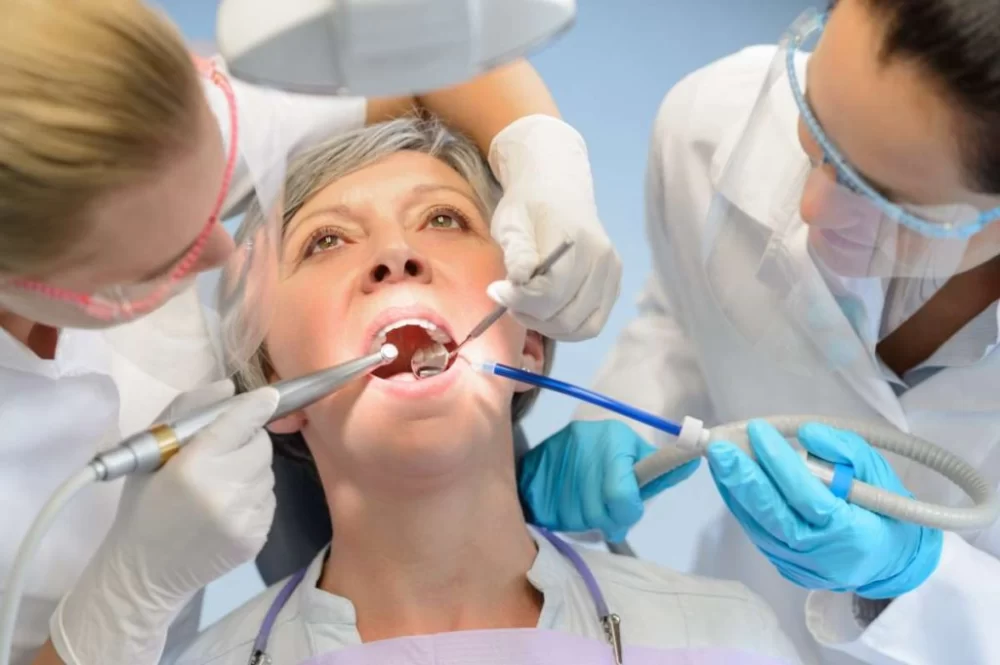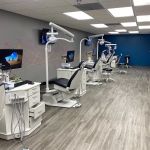
Why Choosing the Right Dentist for Seniors Matters More Than Ever
As someone who’s watched both my parents transition into their golden years, I’ve come to realize how critically important it is to have the right healthcare team on their side—including a skilled and compassionate dentist. Dental care often gets overlooked in seniors, but it’s one of the most vital aspects of aging well. In this article, I’ll share everything I’ve learned, from personal experiences to professional advice, about finding the best dental care for older adults in the U.S.
The Unique Dental Needs of Seniors
1. More Than Just Teeth—Oral Health Reflects Total Health
As we age, our dental needs become more complex. Many seniors are managing chronic illnesses like diabetes or heart disease, both of which can be impacted by oral health. Gum disease, for example, doesn’t just affect your mouth—it can raise the risk of stroke, complicate diabetes, and even lead to respiratory problems.
My father, who has diabetes, began experiencing inflamed gums and dry mouth. We later learned it was a side effect of his medication combined with poor dental hygiene due to arthritis in his hands. This taught us how interconnected senior dental care is with the rest of their health.
2. Common Dental Issues Among Seniors
When I first started researching senior dental care, I was surprised by how common the following problems are:
- Tooth loss and poorly fitting dentures
- Dry mouth caused by medications
- Root decay due to receding gums
- Difficulty brushing and flossing due to limited mobility
- Oral cancer risks increasing with age
Understanding these issues helped us realize we needed a dentist who wasn’t just checking teeth, but was fully aware of how aging affects the entire oral system.
How I Found the Right Dentist for My Mom
1. Look for Dentists Who Specialize in Geriatric Care
Not every dentist is trained to work with older patients. The first few we visited didn’t seem to understand how to address my mom’s arthritis or her anxiety about dental visits. Eventually, we found a clinic that offered senior-focused dental services—including ergonomic chairs, extended appointment times, and staff trained in geriatric sensitivity.
2. Ask the Right Questions Before Booking
Here are the specific questions I asked when screening new dentists for my mom:
- Do you have experience with senior patients or those with chronic health conditions?
- Can your clinic accommodate physical disabilities or mobility issues?
- Do you offer denture fittings and adjustments onsite?
- Are you familiar with how medications can affect oral health?
These questions immediately helped us eliminate clinics that weren’t senior-friendly.
3. Accessibility and Location are Crucial
We chose a practice that was close to home and offered plenty of parking, wide doorways for wheelchairs, and even had transport assistance if needed. For seniors who no longer drive, these small conveniences make a huge difference.
What to Expect During a Senior Dental Appointment
1. A Thorough Medical and Dental History Review
Senior appointments are often longer because they require reviewing a full medical history, especially when multiple medications are involved. The dentist we finally chose took extra time to understand every medication and health concern before beginning treatment.
2. Oral Cancer Screening and Denture Evaluation
Our dentist routinely screens for oral cancer and checks my mom’s dentures for fit and wear. This attention to detail is something we never received at previous offices, and it’s why we’ve stayed with them ever since.
3. Patience and Communication Make All the Difference
It’s not just about the technical skill—it's about trust. Seniors often feel vulnerable in a dentist’s chair. Our provider speaks slowly, uses visuals to explain procedures, and never rushes through an appointment. That’s invaluable.
Financial Considerations and Insurance for Senior Dental Care
1. Understanding Medicare’s Limitations
One of the biggest challenges we faced was realizing that Medicare doesn’t cover routine dental care. It caught us off guard and forced us to look into other options like supplemental dental insurance and discount dental plans specifically for seniors.
2. Exploring Community and Nonprofit Resources
In many U.S. communities, there are nonprofit clinics or university dental schools that offer low-cost services to seniors. We used one of these for emergency dental care once, and the experience was surprisingly thorough and compassionate.
Preventive Care: The Best Investment in Senior Oral Health
Now that my parents are set up with the right dentist, we follow a strict schedule of preventive care. Regular cleanings, fluoride treatments, and oral hygiene education have made a massive difference in their confidence and overall health. My mom even says she feels “ten years younger” now that her dentures fit better and she can eat what she loves again.
Don’t underestimate the power of the right dental team. Whether you’re a caregiver or looking for care yourself, I strongly recommend making this a top priority. For personalized recommendations and trusted professionals, visit our site at Dentistry Toothtruth and find the right care today.







 Paradise Dental Practice5.0 (66 review)
Paradise Dental Practice5.0 (66 review) Russo Family Dental4.0 (16 review)
Russo Family Dental4.0 (16 review) Madison Oral Surgery & Dental Implants4.0 (661 review)
Madison Oral Surgery & Dental Implants4.0 (661 review) LAX DENTAL and ORTHODONTICS4.0 (107 review)
LAX DENTAL and ORTHODONTICS4.0 (107 review) Crimsoncare Family Dental5.0 (248 review)
Crimsoncare Family Dental5.0 (248 review) Kids and Teen Dental Place4.0 (523 review)
Kids and Teen Dental Place4.0 (523 review) The Importance of Oral Health Education During Pregnancy for a Healthy Pregnancy
The Importance of Oral Health Education During Pregnancy for a Healthy Pregnancy Best Tips for Brushing Your Teeth Properly for Healthy Gums: Essential Techniques for Oral Health
Best Tips for Brushing Your Teeth Properly for Healthy Gums: Essential Techniques for Oral Health Why Skipping Dental Checkups Can Lead to Bigger Oral Health Problems
Why Skipping Dental Checkups Can Lead to Bigger Oral Health Problems Advantages of Porcelain Dental Restorations
Advantages of Porcelain Dental Restorations How Can Diabetes Cause Tooth and Gum Problems? Preventing and Managing Oral Health Issues
How Can Diabetes Cause Tooth and Gum Problems? Preventing and Managing Oral Health Issues Healthy Habits for Promoting Good Oral Health and Hygiene: Tips for a Healthy Smile
Healthy Habits for Promoting Good Oral Health and Hygiene: Tips for a Healthy Smile